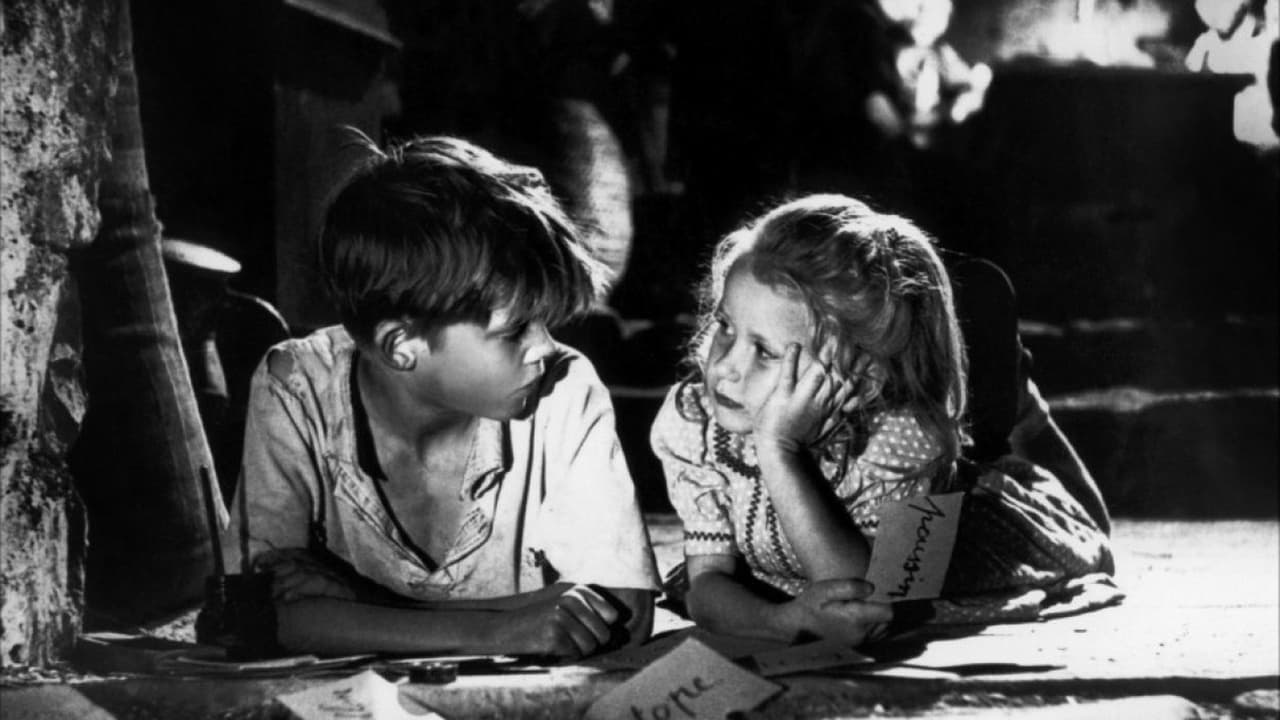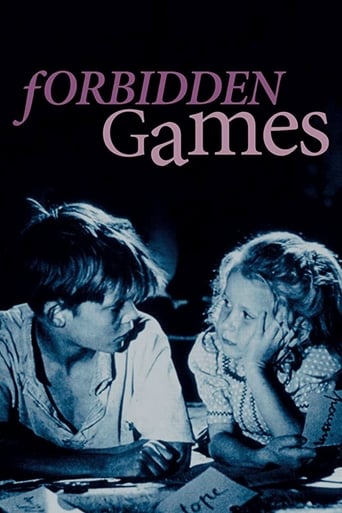

We saw this in a Great Films group for retired university faculty, &c., and I found it very accurate and convincing of how some children will deal with severe loss. (I'm a retired clinical psychologist with quite a bit of experience working with orphans and foster children and I found it very convincing.) Children differ in their reactions to serious events; in this Paulette (age 5) loses her parents and her very dear pet dog to German planes strafing them as they're fleeing Paris early in WW-II. She soon meets an adopting friend, Michel (10), the son of peasant farmers in their rural area, and he gets his family to accept her. He's Catholic (she's not) and Michel teaches her how to say prayers and honor the dead, and together they bury her dead dog (which she'd been carrying) and they somewhat overcome her losses (and his strong need to have a young companion) by building a cemetery, ritually burying other animals, having funeral services (just the 2 of them), and finding (stealing) and putting up crosses on those graves. Very touching but never overdone, IMO. This won many awards including being understandably listed as one of Roger Ebert's "Great Films," an Oscar, et alia.
... View MoreLuis Bunuel meets Frank Capra. If it wasn't for the ambiguous ending I would have given it ten stars. A dramatic, riveting account of two, very human, French rural families who snap and gripe at each other but exhibit caring and love when a 6-year old orphan girl is brought unexpectedly into their lives. The girl, whose parents were killed during an air raid on column of refugees fleeing Paris in 1940 as the Nazi were about to overrun France, is found on the road and befriended by the young 10-year old son of one family. The two children try to deal with the actuality and meaning of death while confounding the two families with their behavior (they create a secret cemetery for dead animals and steal crosses from the local cemetery to mark each animal grave.) The acting by 6-year old Brigitte Fossey is one greatest performances by a child actor ever, and it is an understatement to call it mesmerizing.
... View MoreHere's another french classic. What we've got here is nothing in the style of French New Wave but this isn't just another Holocaust film either. Even though it takes place at the time of the infamous World War II, at least the filmmakers had the decency of not showing too much of the horrors of the war, which is fine by me. That said, this movie is depressing in nature, but that was inevitable. The journey of a very little child named Paulette is quite heartbreaking. Yet it's not like there isn't some humor in this frenchy classic.Paulette is, along with her parents and her sweet puppy, trying to escape from the horrors of war. So are many people. Not all have the same luck, though. Paulette escapes unharmed but both her parents and her adorable puppy don't make it. The bit of the puppy is the most heart-wrenching part of this motion-picture, not only for this little angel's death but also for Paulette's pain over it and the way it gets thrown from some height.Meanwhile Paulette has the luck of finding a bigger and older boy named Michel. They become good friends almost immediately. Michel is notoriously glad with this new friendship (his face speaks more than words). They build a secret graveyard for animals and Michel takes very good care of Paulette, despite the horrible family he's got.Sadly, Paulette is abruptly taken away from Michel, which is devastating for both kids. The ending is very vague. Just when the movie seems to be at the middle, it suddenly ends and we never know if Michel and Paulette ever see each other again.Brigitte Fossey offers one of the most emotional performances by children actors ever as Paulette. Pretty much the same can be said about Georges Poujouly as Michel Dollé.Title in Portugal: 'Brincadeiras proibidas'.
... View MoreWar. A peasant family. A girl. An animals cemetery. And mixture between innocence and bereavement. A movie as a white paper. Every word is a seed- sign. German plains and secret games. Michel and Paulette. Love as indistinct smoke of autumn and looks of children like huge mirrors. Film about forms of cruelty , it is not pledge against war but sketch for small hours of fundamental peace. Picture of a world , secret, fragile, strong and its borders. Ladder between ages, Jeux interdits is invitation to large view . Crashes, meetings, end of graves and courage to build an unbearable circle. Memories and steps. In the front of dusty words. In the skin of impressive music.
... View More